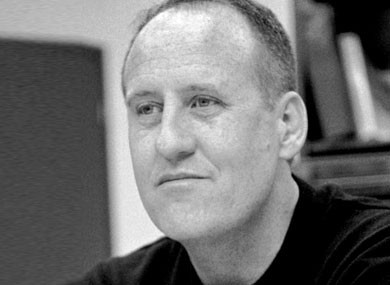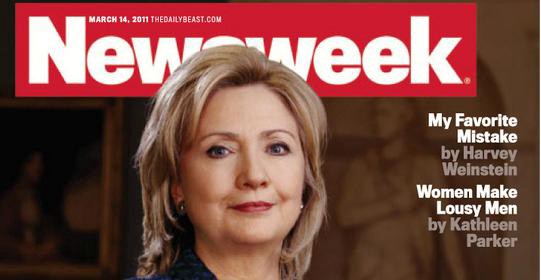Researchers Discover That Beer Tastes Good In Ireland
“It’s one of the most stoutly contested Irish boasts in bars the world over. But scientists claim to have settled the score once and for all: Guinness tastes better in Ireland than anywhere else.”
Prodigy Released From Prison, Heading To The Russian Tea Room
The great Queens rapper Prodigy was released this morning from Marcy, New York’s Mid-State Correctional Facility (where he recorded this harrowing ice-pick of a song, above, over the phone last year), having completed a three-year sentence for gun possession. According to the producer Alchemist, a frequent collaborator, Prodigy will meet Havoc, his longtime partner in the duo Mobb Deep, in a recording studio this afternoon to start work on new music. He has a book coming out, too — My Infamous Life: The Autobiography of Mobb Deep’s Prodigy — set for release April 19 through Simon & Schuster. He’ll be reading from it at the Russian Tea Room on May 6th.
The Albums of R.E.M.
The Albums of R.E.M.
Awl pal Matthew Perpetua assesses the oeuvre of R.E.M. You will almost certainly disagree with the order in which he has arranged the albums, but I suppose that’s the point of these things. As someone who remembers a spring of many years ago where it seemed to rain every day — back when a persistent bout of bad weather was something seen as temporarily dispiriting rather than the inevitable result of our attack on the planet — I will never rank anything more highly than Murmur, which I had on both sides of a cassette that remained in the deck on auto-reverse until summer finally burned through, but I guess everyone’s got their own number one.
That Northwestern "Human Sexuality" Class Was The Best Course I Ever Took
by Joseph Bernstein

In three years as an undergraduate at Northwestern University, I only saw one professor argue with his students. It happened several times in the same class, Human Sexuality, and I will never forget the first time it happened. It was the winter of my sophomore year, 2005. The professor, J. Michael Bailey, had been leading us through some provocative research, which suggested that if you control for a whole variety of factors, adults who were sexually abused as children are not much more likely to have psychological pathologies than adults who were not. The implication, that the sexual abuse of children might not be as damaging as our culture has long assumed, naturally upset some members of the class, and Bailey, as was his practice after introducing a controversial topic, halted his lecture for ten minutes of questions and answers.
A dark-haired young woman in the back of the class stood up right away. This was not an insignificant act; Human Sexuality was one of the most popular courses at Northwestern and hundreds of people gathered in the huge lecture hall on North Campus every winter to attend, so hundreds of heads turned to look at her.
“You’re talking about sexually abusing children,” she said, in tone that would have been hectoring if it hadn’t been so surprised. “No matter what the research says, that is morally wrong.” Bailey said that his moral judgment had nothing to do with the matter, that he was presenting research and that was all. This was clearly unsatisfactory to the young woman, who asked in response, “What would you say if one of your daughters was molested?”
Everyone has taken a class where the lecturer loses the respect of the students. This, I thought, was on the verge of happening. If Bailey responded defensively or, worse, derisively, he would lose the audience, maybe for the rest of the semester. I was sure that he would take the temperature of this woman’s voice, deflect the question and move on.
“If one of my daughters was molested, I would be devastated,” he said. “But I would take comfort in knowing that the molestation would not necessarily ruin her life.”
The young woman sat down. Bailey got back to his lecture.
Why am I telling you this story? J. Michael Bailey is the person at the center of the controversy currently burning on the Western shore of Lake Michigan, fed by gusts of air from every prurient corner of the Internet and every red-faced moralist who can sit through the Fox News or MSNBC or CNN makeup chair long enough to release his outrage.
What happened is this: Bailey, as he does several times every semester, organized an after-class demonstration, which in this particular instance took the form of one non-student Chicagoan applying a device known as a “fucksaw” to the vagina of another non-student Chicagoan, who apparently reached orgasm, though we have made the collective mistake of assuming so. (If “Seinfeld” has taught us nothing else, it is that only she knows for sure.)
Pardon the digression; commence the defense. I arrived in Northwestern in the fall of 2003, smart-assed and smug, from the halls of a criminally overpriced prep school in northwest Washington, D.C., which for all of its faults taught me that everything should be questioned, that good argument dignifies everyone and that being intellectually boring is sort of a sin. Let us say that these were not the values I encountered at my new home.
To understand Bailey’s worth to Northwestern, you need to understand a little bit about Northwestern. First, it’s full of very smart and very driven people. Second, it’s not a place where young people go to have their assumptions challenged. It’s not the sort of university where young people go to experiment and find themselves and dabble in campus radicalism and psychedelics and maybe let someone of the same sex or someone in a body suit rub up on them. Due to its prestigious undergraduate programs in theater, journalism, engineering and business, it has an entrenched and sometimes suffocating pre-professional streak. In every way, geographically, intellectually, socially, psychologically, it’s the opposite of our South Side rival for academic supremacy. It’s also really, truly, appallingly cold. Which is all a way of saying that it’s the sort of place that might benefit from a fucksaw every now and then.
I was adrift there. I know, I know: poor little me, paying $40,000 a year to be intellectually alone and sad in picturesque north Chicagoland. But let me say in my defense that 18 to 20 is a really awful age to feel like there’s a good conversation going on somewhere and you aren’t having it. The early classes for my English major didn’t help. Sure, I learned how you can interpret The Matrix through a Lacanian lens, but I never heard anyone argue why you should. The students didn’t care and the professors didn’t notice. There were no stakes.
So now you can maybe see why that moment in Bailey’s class was so revelatory for me. I was watching an academic defend his field in the context of his life. There were stakes. It wasn’t life-altering or anything quite so neat as that. But it was an educator taking seriously enough the intentions of his students to expect that they could handle facts that made them uncomfortable. I felt, more than anything, respected.
It certainly wasn’t his presence that made Bailey the best professor I had at Northwestern. He lacked the performer’s intuition that the great lecturers have, the sense of drama, of revelation. He spoke in a monotone and in class would basically shuffle around the stage with his microphone. But he taught major, contentious areas of sexuality research that we all have a stake in: about the genetic basis for sexual orientation; about the evolutionary costs and benefits of rape; about real, observable differences in male and female arousal patterns; about case studies of people who can only achieve sexual pleasure by cutting off their own limbs. Bailey assumed that we were not in the class just because it was about sex or, worse, to fulfill some silly course requirement. He assumed we were in class because we were as interested in the mysteries of human sexual experience as him.
I won’t comment on the most recent demonstration. I wasn’t there. But the fact that these events have been going on for years leads me to believe that the current controversy has a lot more to do with the word “fucksaw” than anything else. These demonstrations clearly existed to expose a group of smart but sheltered young people to the staggering spectrum of human sexual behavior. Sometimes people need to be shocked out of their assumptions.
I only remember one demonstration from 2005 well. It was just a panel of gay men, longtime friends of Bailey’s, who sat in front of the class and answered any question the audience could come up with. I simply didn’t know very many gay people when I was 20 years old, and I had a whole host of assumptions blasted by the commonsense, funny, sad answers provided by the men on the panel. There was a moment late in the demonstration when it became clear to the class that the removal of women from the sexual equation results in a lot more, well, sex. Someone asked the panel: “How many of you have had sex with each other?” The men, who ranged widely in age, looked at each other, and it was clear some major mental math was happening. All at once, the men on stage started just shaking with laughter, and the audience did too. I didn’t leave the lecture hall changed in any fundamental way, except I knew a little bit more about the three or ten (depending on who you ask) percent of men who have sex with other men. I can say that no other professor’s class at Northwestern taught me that much about the way actual people live in the world.
It has barely been reported that the “fucksaw” demonstrators led an hour-long discussion after their shocking act. Can we extrapolate from this fact that some knowledge about human sexuality may have been gleaned? That some 19-year-old from Peoria might not think his new girlfriend is weird or disgusting when he stumbles upon her leather closet? That we all got here from fucking, that we do it in a lot of different ways, and someone should probably be studying it? Or would it just be easier and more satisfying to be scandalized?
Joseph Bernstein does not own a fucksaw.
Horrible People Do Awful Thing To Teddy Bear

Terrible news from North Carolina, where a symbol of innocence and hope has fallen prey to the innate cruelty and emptiness of heart that seem to be the hallmark of the age:
One week ago today, villains… sneaked onto Tara Wilson’s front porch and stole the life-size black bear her father gave her for Christmas when she was 5. They gouged out its eyes, ripped open its gut, tore out its stuffing and wore its hide around the neighborhood like a trophy.
When the cry went out along her South Raleigh street — “Henry is missing!” — neighbors knocked on doors, quizzed the mail carrier and scoured dark corners until they spotted the culprit on a bicycle, Henry’s brutalized remains around his shoulders.
Henry “was all dirty,” said Wilson, 26. “And violated.”
This sickens me on every level. But I would like to know more about the violating, for some reason. [Via]
Photo by bixentro, from Flickr.
Acclaimed Novelist Republishes First Book

Awl contributor and author of The Metropolis Case (Crown, 2010), Matthew Gallaway certainly pulls no punches in reassessing What Shall Be I Be When I Grow Up?…, a book he wrote in 1979, when he was 11 years old, and recently republished in its entirety, on the Internet. “Initially heralded as a ‘model of gender equality and optimism,’” Gallaway writes today, “the book was later dismissed as ‘derivative, unoriginal, and convoluted’ and subsequently banned in most schools when an investigative reporter uncovered evidence of subliminal messaging through the use of product placement — a practice then in its infancy — and politically subversive content.” Having read the book myself, I think such criticism is too harsh. In focussing his review solely on the most controversial aspects of the work, Gallaway is too quick to dismiss the courage his younger self displayed in challenging conventional wisdom (a six-legged octopus!) and wrestling with what is perhaps the single most profound question inherent to the human condition. What Shall I Be When I Grow Up? Indeed, what shall any of us?
Missing Kenny Rogers? Good News!

Hey, were you just the other night asking what is up with Kenny Rogers? This morning’s press release is here to help you with an answer: “Kenny Rogers’ historic music career celebrates a few more firsts when his new ‘The Love of God CD’ debuts exclusively at all Cracker Barrel Old Country Store® locations today. The CD is his first authentic Gospel album featuring twelve new recordings of songs that have touched him musically and spiritually through the years. And it’s the first time an artist has released a second album through the Cracker Barrel Old Country Store® exclusive music program.” We’ll repeat that last part in case you failed to appreciate the significance: “it’s the first time an artist has released a second album through the Cracker Barrel Old Country Store® exclusive music program.” Clearly, when Francis Fukuyama posited “the end of history” he had NO IDEA WHAT HE WAS TALKING ABOUT. History is happening right before our eyes, particularly if those eyes are over at the Cracker Barrel Old Country Store®.
I Hope These Punk Rock Bands Are Not Influencing Oregon's Farmer-Foodie Culture
I Hope These Punk Rock Bands Are Not Influencing Oregon’s Farmer-Foodie Culture
“Now, Mr. Jones, 30, and his wife, Alicia, 27, are among an emerging group of people in their 20s and 30s who have chosen farming as a career. Many shun industrial, mechanized farming and list punk rock, Karl Marx and the food journalist Michael Pollan as their influences. The Joneses say they and their peers are succeeding because of Oregon’s farmer-foodie culture, which demands grass-fed and pasture-raised meats.”
— The New York Times
The New 'Newsweek'

It’s here! It’s Tina Brown’s Newsweek! There it is, between the huge amount of word-free space and a 2/3rds of a page devoted to a photograph of a shoe: Harvey Weinstein and Hillary Clinton as hot topics, with editorial buttressing from the minds of Larry Summers and the recently unemployed Kathleen Parker and Joanne Lipman. Mmm, it’s like soaking in a nice warm bath of a comfortable yesterday — a happy, mature place of sort-of kind-of powerful people (the kind of people who have “power” at Michael’s restaurant, or certain overpriced bistros in D.C.) explaining things simply and calmly (and sometimes correctly), with the occasional stroppy quote on the big proposition of last week. They each get to indulge in their favorite tics: Harvey gets to confess his “mistakes” which, in true job interview fashion, turn out to be his “strengths and learning experiences.” Lipman gets to apolitically write about an atomic energy CEO, who is “hard-charging” and “a media darling.” Larry Summers gets to not answer some good questions. I like the gumption behind all this! I am impressed that it directly addresses 44-year-olds — almost any other magazine launch would be gunning for 32-year-olds. The idea of making it a shiny weird semi-luxe thing (a giant picture of a shoe!) is probably a very good business decision. This is going to electrify the waiting rooms of dentists all over Scarsdale.
Someone Paid $4,675.75 To Ride On The New Japanese Bullet Train
Japan’s new “superexpress” bullet train was created out of a laser falcon who swooped down from outer space trailing a meteor shower of teal-and-fuschia neon sparks. But while the Hayabusa (Japanese for “peregrine falcon”) is hurtling between Tokyo and Shin-Aomori at 186 miles per hour on the outside, it’s a tranquil, luxurious scene in the premium class cabins, where waitresses serve tea and automated white leather seats recline into the passenger’s desired position. Someone paid 385,000 yen (4,675 dollars) for a scalped ticket on Saturday’s inaugural three-hour-and-ten-minute ride — 23 times the original price.
